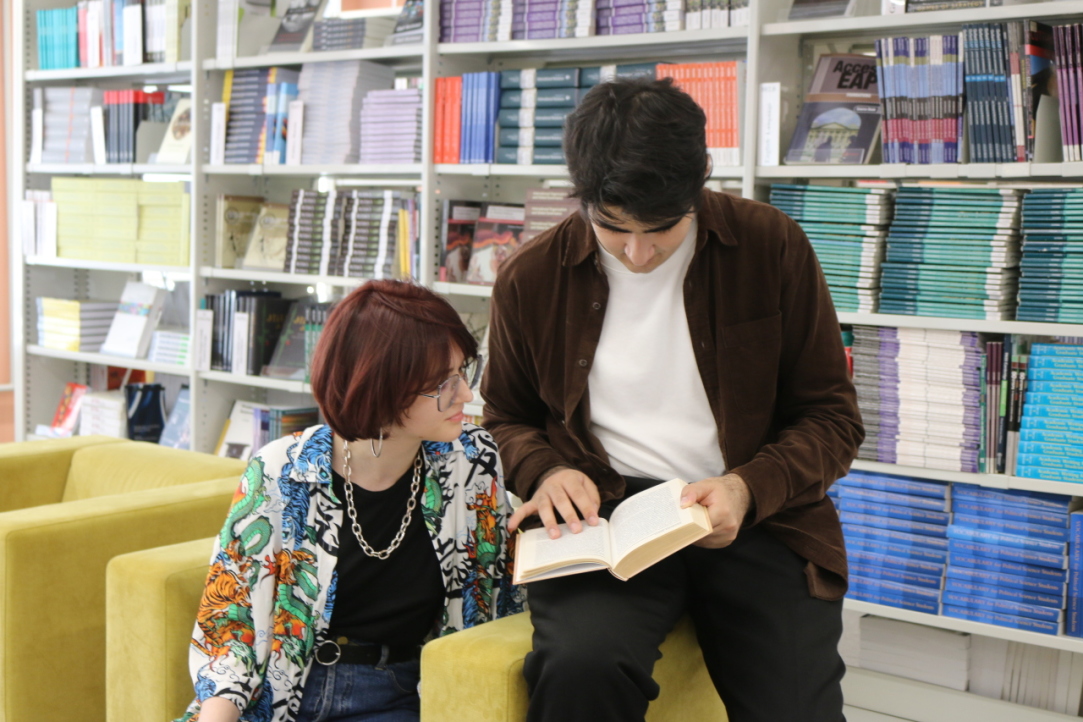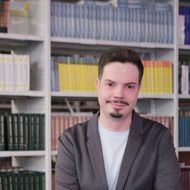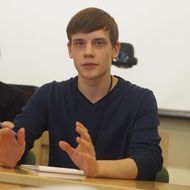What Is Political Science and Why Study It?
What is political science? What does a political scientist do as a researcher? How is political science connected with real life? These were responded to by the lecturers of the programme 'Political Science and World Politics'.

Yury Kabanov, Academic Supervisor of the programme 'Political Science and World Politics'

First of all, politics is connected with power and governance. It means establishing the 'rules of the game' according to which the society lives and different spheres—from economy to culture—function. Political science helps to understand how these rules are formed, how they vary in different countries and influence people. This knowledge is useful not just for those who are directly involved in politics and diplomacy, but for businessmen and journalists as well. Political science lets us understand the context of professional activity and forecast the changes and as a consequence be better prepared for them.
Aleksei Sorbale, Senior Lecturer, Department of Political Science and International Affairs

Political phenomena are rather hard to study. There are always authors whose behaviour falls outside the scope of conventional explanatory models and institutes which work in the unexpected way: surprisingly effectively or usually extremely badly.
Under conditions of poor predictability, political science mostly focuses on retrospective analysis. Good political science researches build the models based on data which help to single out the facts influencing particular outcomes. Such outcomes include electoral victory of this or that candidate or a dramatic change in public opinion. Retrospective researches of that kind seemingly deal with social and political phenomena of the past. But in reality, they contribute to more reasonable and accurate predictions concerning the outcomes of the similar events in the present.
This knowledge is useful both for public education and the stakeholders who make key decisions in the corresponding events. In specific cases, when the spatio-temporal boundaries are correctly used and perceived, theoretical and methodological tools can be implemented to forecast the outcomes of political processes which the scientists could observe in different context in earlier periods of time.
Andrey Starodubtsev, Academic Supervisor of the programme 'Comparative Politics of Eurasia'

Political science is the best type of science for doing researches on countries and relations between them. Over the years of development and aspiration to describe and explain the multifaceted phenomenon of power in a better way, political science has managed to integrate in itself methods and approaches of other social sciences. It helps political scientists to find effective tools to solve any problems: either theoretical or practical.
Ivan Grigoriev, Associate Professor, Department of Political Science and International Affairs

Political science is a science about formalised forms of power in society: how the power is gained, hold onto, lost and exercised for the benefit or to the detriment of the society. The core of political knowledge and interest is state power. It is the power that citizens let to exercise over them and on their behalf in the interaction with other countries. Power can be different as well: power is used in a family, family members 'hold power' over each other; bosses 'hold power' over their subordinates. Political science focuses on the power inside the state: when it is not a boss or a relative who holds power over people, but complete strangers who hold the power merely due to the fact that they are rulers.
We study politics because of various, sometimes purely special reasons. The main one is that it is not clear, first of all, why such power is exercised over us at all and, second, how to make it useful. So we aspire to answer the question what power is useful and why it is this power that is exercised. In contrast with power in a family or at work, here the essential role is given to social or political structure. That is what political science studies.
Denis Stremoukhov, Senior Lecturer, Department of Political Science and International Affairs

Political science is a science that helps to understand the world around us. The surrounding reality was shaped by a number of political decisions and events at many different levels: from municipal to international. Every person will find something of their own in political science. Some people will take interest in the great mysteries: why are states so different from each other? Why do international conflicts occur? Others will be engaged in the down-to-earth, but at the same time practical questions: what influences the quality of municipal services provision? The number of such mysteries is unlimited. Each answer to them helps to understand a little better why the world around us looks the way it does.
Understanding is a great way to protect ourselves from anxiety. When you can explain the reasons for political events and phenomena to yourself and others, life becomes much calmer. Such knowledge is becoming and will become more sought-after.

